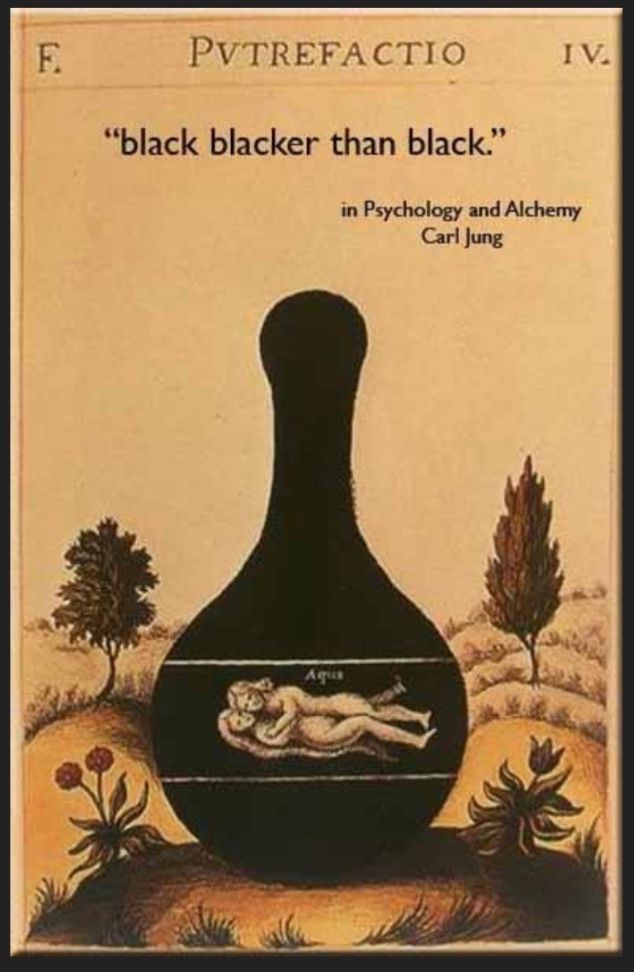Laurens Buijs
Amsterdam Gender Theory Research Team
Patriarchal society (see AGTRT-BA9) has traumatized us. Patriarchal culture has split our psyche, resulting in trauma. Since all people are patriarchally socialized to a greater or lesser degree in the present age, one could argue that all people are traumatized to a greater or lesser degree at this time (AGTRT-BA4).
Learn how patriarchy has split our androgynous core, and how we can heal it:
How patriarchy has split our psyche, and how we can repair the damage
Trauma creates such ugly behavior that we usually do everything we can to look away from it. This creates in ourselves what Carl Jung called a “shadow side”: a part of our personality that is not integrated, and thus for which we have no awareness and take no responsibility. However, it is very important to look at this and heal the underlying trauma. The shadow side is anything but innocent, but purely evil and destructive.
According to Jung, our shadow side has everything to do with gender (see also AGTRT-BF20). Human beings have an androgynous soul (a soul with masculine and feminine sides), but because we have been socialized in patriarchy, we have all learned in some way to betray our inner feminine side (see AGTRT-BA1, AGTRT-BA5 and AGTRT-BA11). And this self-betrayal allows malice to creep into our personality.
Learn more about the basics of gender:
What is gender anyway, and why is biological sex not sufficient?
Patriarchy ultimately floats on power inequality: the masculine dominates over the feminine (see also AGTRT-BA24). We have all internalized that in the form of authoritarian, (passive) aggressive and manipulative behavior, which can express itself in a variety of explicit and implicit ways.
In this, by the way, we often do not even take an active role. Some individuals indeed carry great aggression in their Shadow, but there are also those who facilitate aggression from others without initiating aggression themselves. In addition, there are those who always like to remain neutral and thus look away from the aggression of others, and still others like to solve the aggression of others by being endlessly patient with them.
These are all kinds of ways in which we are unintentionally and unconsciously complicit in aggression, even if we do not actively express that aggression ourselves. This, too, is shadow behavior. There are thus many explicit and subtle ways by which unjust authority is perpetuated in our social relationships.

Moreover, the malevolence of patriarchy is always mirrored in relationships. We let authoritarian and aggressive behavior wash over us one moment, while blunting it on others the next. As long as we do not have in our consciousness how we allow ourselves to be beaten by authoritarian forces in our lives, we will unconsciously behave toward others as an executioner.
The ideal starting point for dealing with our shadow side, therefore, is to develop awareness of how we allow ourselves to be subordinated by authority in all kinds of everyday situations. When that awareness is there, we will naturally stop assuming an authoritarian role toward others. This awareness is developed by learning to listen more and more carefully to our anger (see also AGTRT-BA26).
Anger tells us when we are pushed into a subordinate and unjust position, and what energy we need to tap into to free ourselves from it. However, patriarchal man so associates anger with disobedience and other “bad qualities” that contact with this emotion is disrupted in early childhood.

Successful shadow work requires acting on two levels. First, the psychological level: the person doing shadow work must become aware of their own anger. Anger tells us by whom we allow ourselves to be pushed into a subordinate and inferior position. This often happens in ways we can’t quite reason out, which is why feeling is so essential.
Second, the social level: the anger will have to be brought into relation by putting it into language and expressing it to the people you are angry with. Many people in today’s society do not cope well with confrontations with their shadow side, and will shoot into an ego defense reaction. They may resort to victim blaming or gaslighting, for example. They then try to make your reaction to their misbehavior (your anger) the problem, rather than their misbehavior itself. This can lead to all kinds of scapegoating dynamics against the person doing shadow work (see also AGTRT-BA26).
Shadow work is therefore a disruptive process that will often (at least initially) alienate our loved ones. However, this distance is necessary to give the bond a chance of healing in the longer term and to find a healthier and more equal foundation. People who are further along with their own shadow work will be better able to receive your anger: they will be less likely to shoot into ego defense, and recognize the expression of your anger as an act of love with which they can improve themselves and your mutual bond.
Reconnecting with our anger is easier said than done. Because the bond with our anger has been disrupted by our patriarchal socialization from early childhood, it can take many years to restore that bond. The restoration of this bond will involve greater awareness of one’s own unintentional and unconscious tendencies toward repression and aggression. As we begin to feel our anger better, our own tucked-away dark sides also come more and more to light. That is why Jung calls this process shadow work.
Many people need professional psychotherapeutic guidance in this process. Patriarchy has subtly and unconsciously nestled itself so deeply into our lives and our psyche that the process of desocializing ourselves from it is very intense. To reconnect with our androgynous soul will require digging deep into one’s own unconscious, and that is bound to lead to fundamental turbulence.
Jung defines shadow work as a deeply mystical process in which the relationship with one’s own self-conception is so overturned that it cannot be done other than through great personal crises. In this process of transformation, the old life will completely collapse. To truly break free from patriarchy, all kinds of sacrifices will have to be made in the form of superficial material possessions, and in the form of relationships that are not truly equal and reciprocal.
To get through this disruptive time in the best possible way, it is essential that the person doing the shadow work develops an unconditional trust in one’s own emotions, and a rock-solid belief in a divine plan. Unless the patriarchal tendency toward reason and control is abandoned, shadow work is doomed to failure.
But no matter how tough the process of shadow work is: running away from it, in the end, is always the worst choice. Those who walk around with a large shadow about which there is no awareness will eventually cause much destruction. Or as Jung himself put it:
“The psychological rule says that when an inner situation is not made conscious, it happens outside, as fate. That is to say, when the individual remains undivided and does not become conscious of his inner opposite, the world must perforce act out the conflict and be torn into opposing halves.”
Carl Jung, Aion, Christ: A Symbol of the Self, p. 70/71.
So Jung argues that when we do not recognize or understand certain aspects of ourselves, these unconscious parts manifest themselves in our external world as fate or destiny. In other words, if we do not become aware of our inner conflicts or contradictions, these conflicts will reflect in our outer world and lead to division.
People who struggle deep inside with repressed feelings of anger, but do not acknowledge or explore these feelings, will attract situations in which they are repeatedly pushed into a subordinate and inferior position. This then leads to even more suppressed anger and even greater inner conflict.
This struggle will not stop until awareness of anger is developed and brought into relationship. Only then can the person create a more balanced and harmonious life. Shadow work, then, is about creating self-awareness and understanding our inner world to achieve a more peaceful and fulfilled relationship with the external world.
Our shadow side is never our best side, but it is also not surprising that we developed it. Shadow behavior actually stems from old survival roles. It was once useful for our survival when we had to maintain ourselves as children in an unsafe environment. Therefore, it is important that we be generous in forgiving ourselves. But if we want to get rid of patriarchy, we will have to take responsibility for it and deal with it. In doing so, it is important not to underestimate the shadow side in ourselves and others. Soft-hearted masters generally make stinking wounds in shadow work.
Especially in these times, this inner work is more important than ever. Evil is currently gripping the earth like never before, exploiting our shadow side and unhealed trauma. The only solution is to confront the shadow in yourself and in others. Only then will we pave the way to a new empathic world, where it really must come about now before evil settles down for good (see also AGTRT-BA19).

Leave a Reply